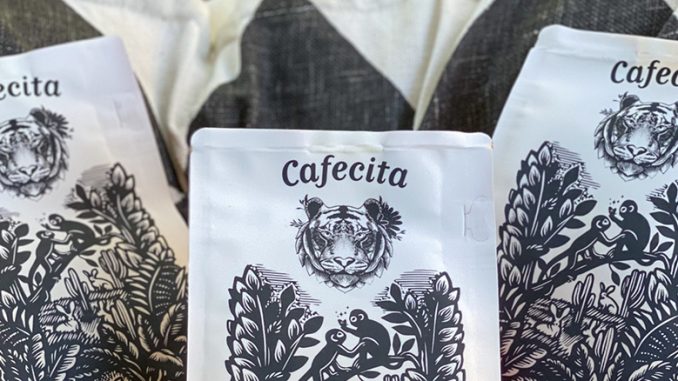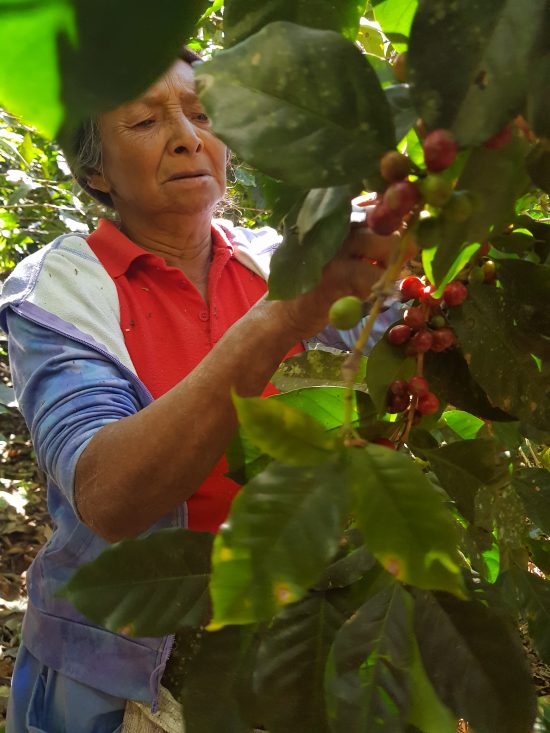
Coffee industry activists are putting women coffee producers at the forefront of their fight for workers rights.
BY EMILY MENESES
SPECIAL TO BARISTA MAGAZINE ONLINE
Photos courtesy of Natalie Webb
Would you be surprised if I told you that women do about 70% of the manual labor on coffee farms? This means that almost two-thirds of the planting, picking, processing, and sorting is done by women—and yet, women coffee producers are frequently overlooked when it comes to decision-making, trading, analysis, and business ownership.
It’s no secret that there’s a problem of gender inequality within the industry, and this truth applies to many rungs of the ladder: from the coffee farmers, to the roasters, all the way to the baristas churning out lattes at your local café. Throughout many facets of the coffee world, women are underrepresented and underpaid. However, because the coffee farming community as a whole is already especially vulnerable to poverty, food scarcity, and limited legal protection, women coffee producers are particularly at risk—which is why many coffee industry activists are placing them at the forefront of their fight for workers’ rights.

In 2015, the SCAA identified four key areas in which the gender gap amongst coffee producers are most pronounced. First, women coffee producers are less likely than their male counterparts to own land; second, they’re more likely to take on the brunt of physical labor; third, they are paid less than their male counterparts; and fourth, they are given fewer leadership positions. Even more pressure is placed on women coffee producers because of the cultural expectation that women should uphold domestic duties while simultaneously maintaining the farm. Though they provide almost all of the physical labor needed to keep their communities running, they’re given little to no credit or ownership.
Women coffee producers also lack a sense of financial independence, which stems from low wages and the inability to own land. This also makes women coffee producers vulnerable to gender-based violence and sexual assault. In these cases, they often lack the finances, safety networks, and legal support needed to protect themselves. Amidst COVID-19, natural disasters, and the worsening effects of climate change, the daily stresses that women coffee producers face are more serious than ever before. In response, a handful of U.S. coffee shops are putting women coffee producers at the center of their work.

One such shop is L.A.-based Cafecita Coffee, whose team has dedicated their entire business to this ethos. The shop offers coffee beans that come solely from sustainable women-owned coffee farms and co-ops. Through their work, they’ve assisted women producers in Rwanda, Honduras, and Mexico in achieving increased economic stability, purchasing their own land, and learning how to work together to ensure a brighter collective future.
“Cafecita works specifically with women producers to provide equal market access and ensure the producers receive their fair share of the profits,” stated Natalie Webb, Cafecita’s executive director. “We want to ensure that gender equality is respected at every stage of production. This empowerment leads to better outcomes for families and communities.” The shop also dedicates a percentage of their sales to supporting women’s nonprofits around the world, and has partnered with En Vía, a nonprofit that provides no-interest loans to artisans and entrepreneurs in the villages surrounding Oaxaca, Mexico.
The work that Cafecita and En Vía do is just the starting point of a positive snowball effect. Research has shown that empowering women coffee producers plays a key role in addressing global issues, such as the issue of world hunger. The Food and Agriculture Organization (FAO) of the UN has reported: “Just giving women the same access as men to agricultural resources could increase production on women’s farms in developing countries by 20 to 30%. This could raise total agricultural production in developing countries by 2.5 to 4%, which could, in turn, reduce the number of hungry people in the world by 12 to 17%, or 100 to 150 million people.”
The ongoing fight for women coffee producers’ rights is a stark reminder of the global and intersectional mindset we should keep when approaching feminism. Here in the western world, our struggle as women is inseparable from their struggle, just as their freedom is inseparable from our freedom.

ABOUT THE AUTHOR
Based in Los Angeles, Emily Joy Meneses is a writer and musician passionate about culture and collective care. You can regularly find her at Echo Park Lake, drinking a cortado and journaling about astrology, art, Animal Crossing, and her dreams. Explore her poetry, short stories, and soundscapes on her website.

